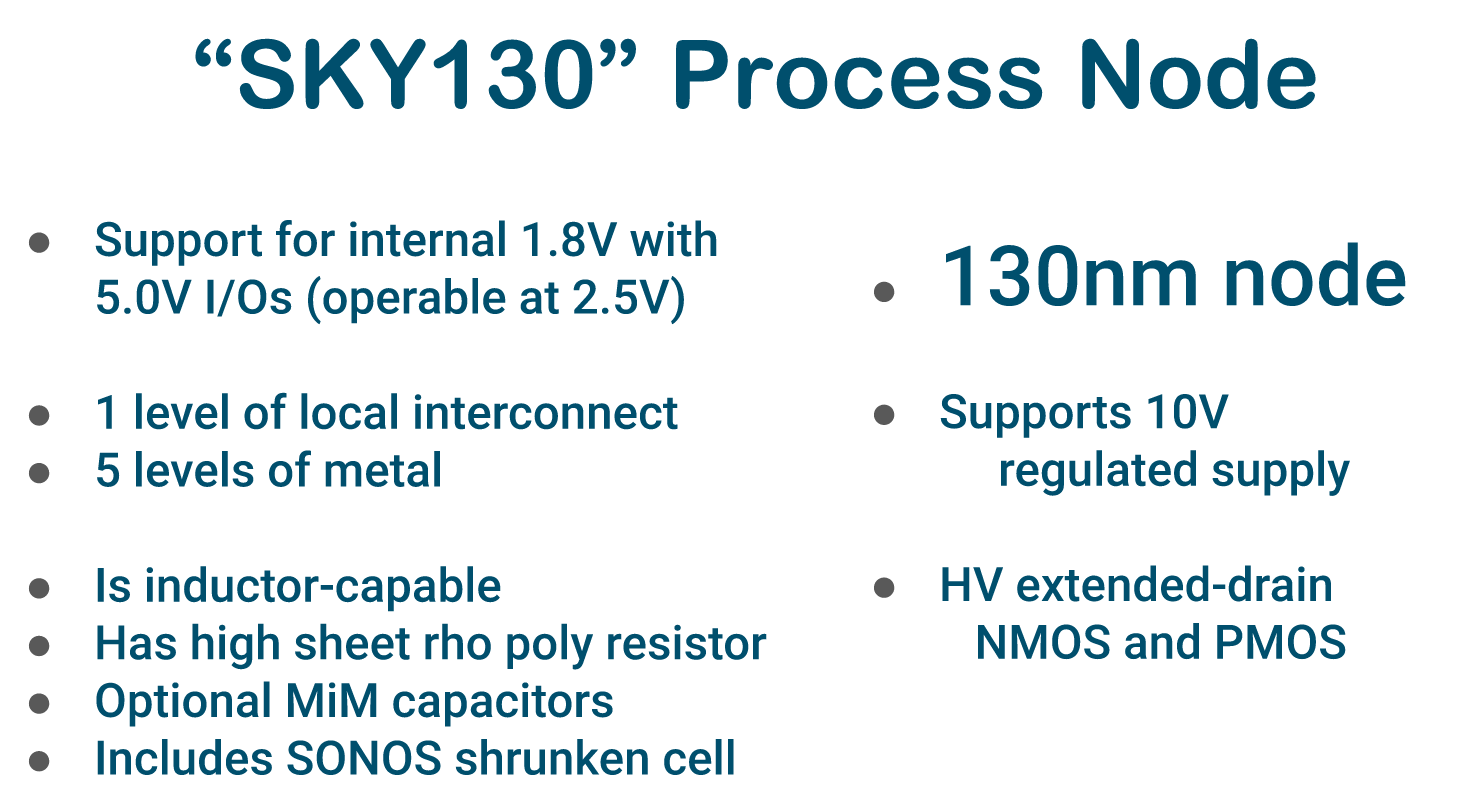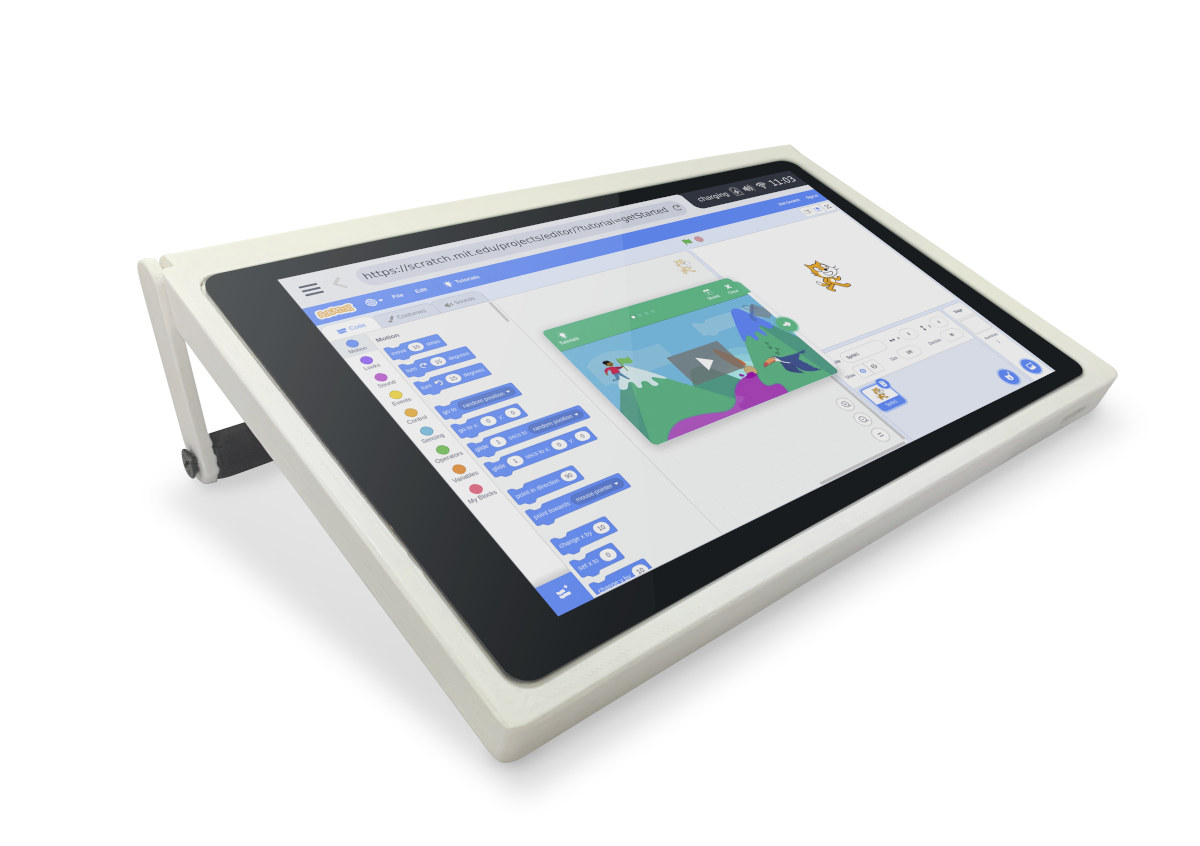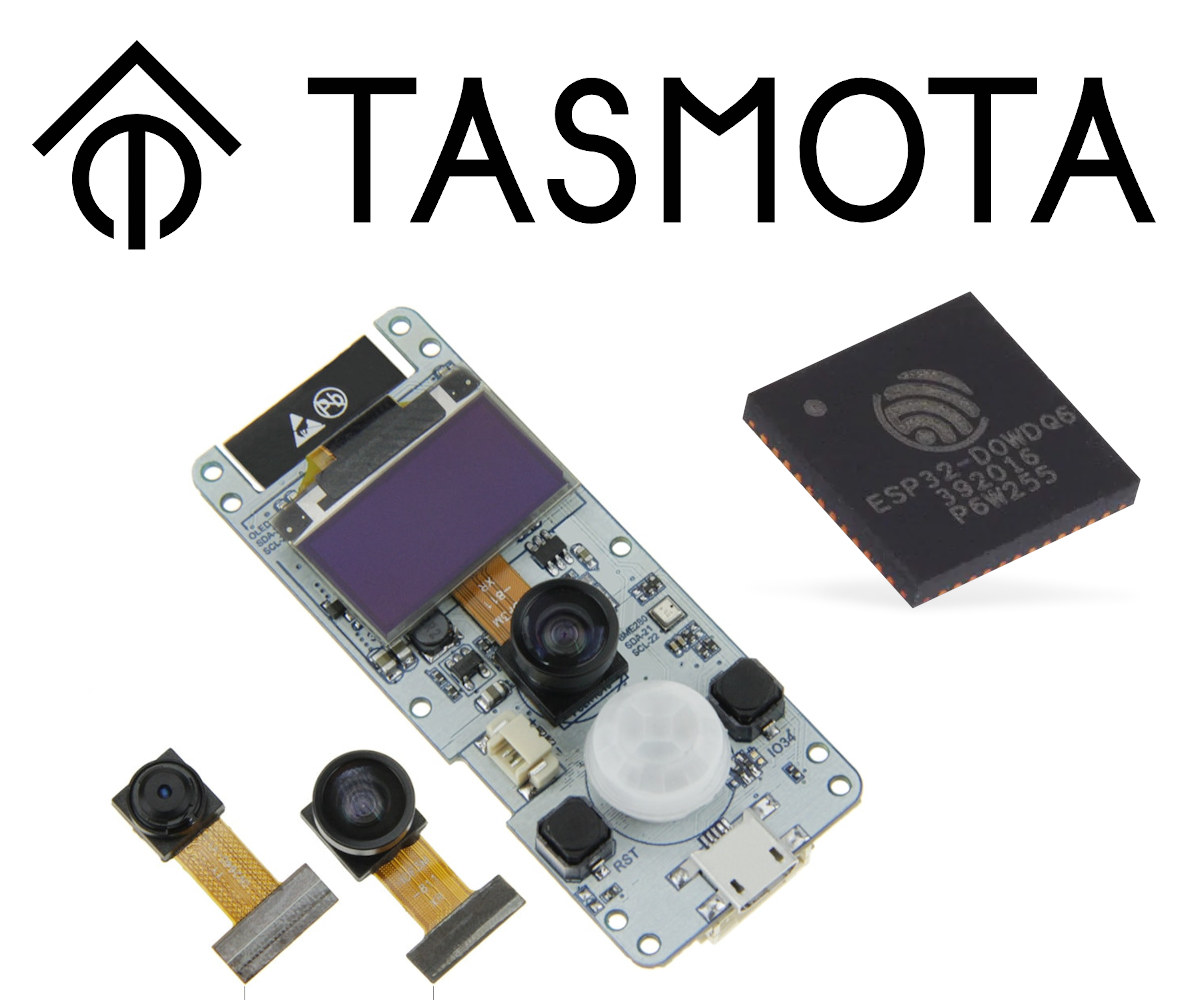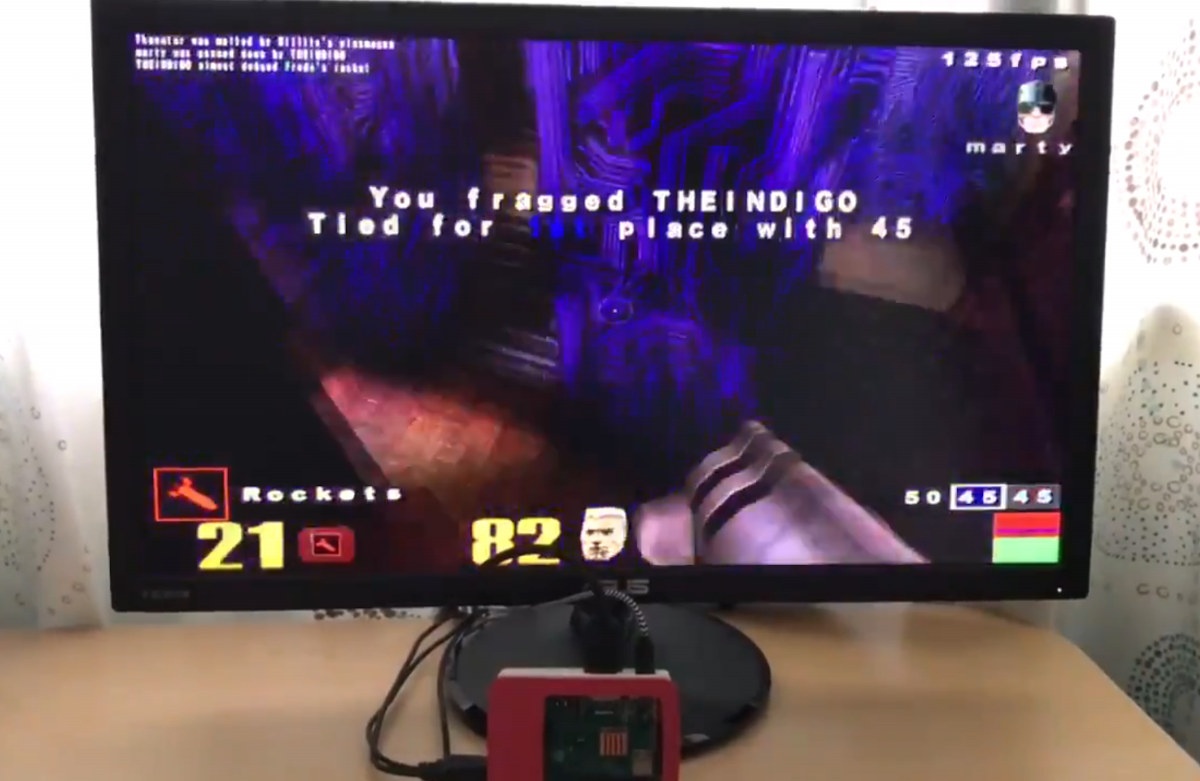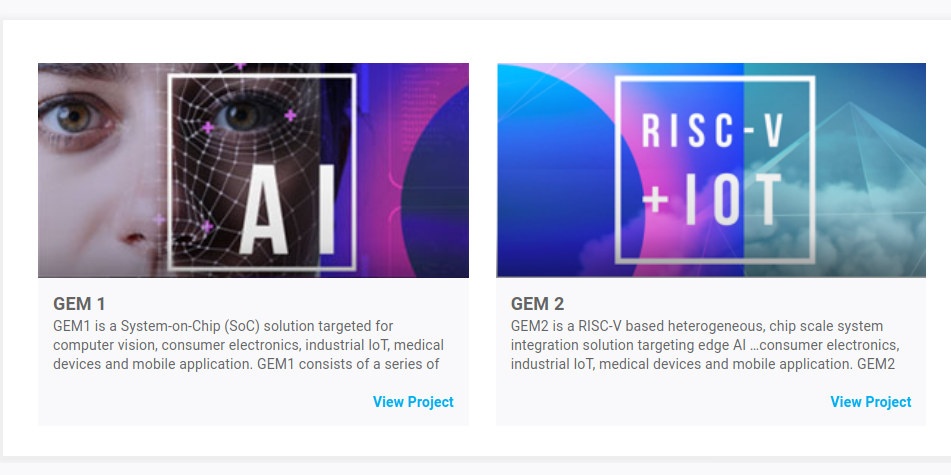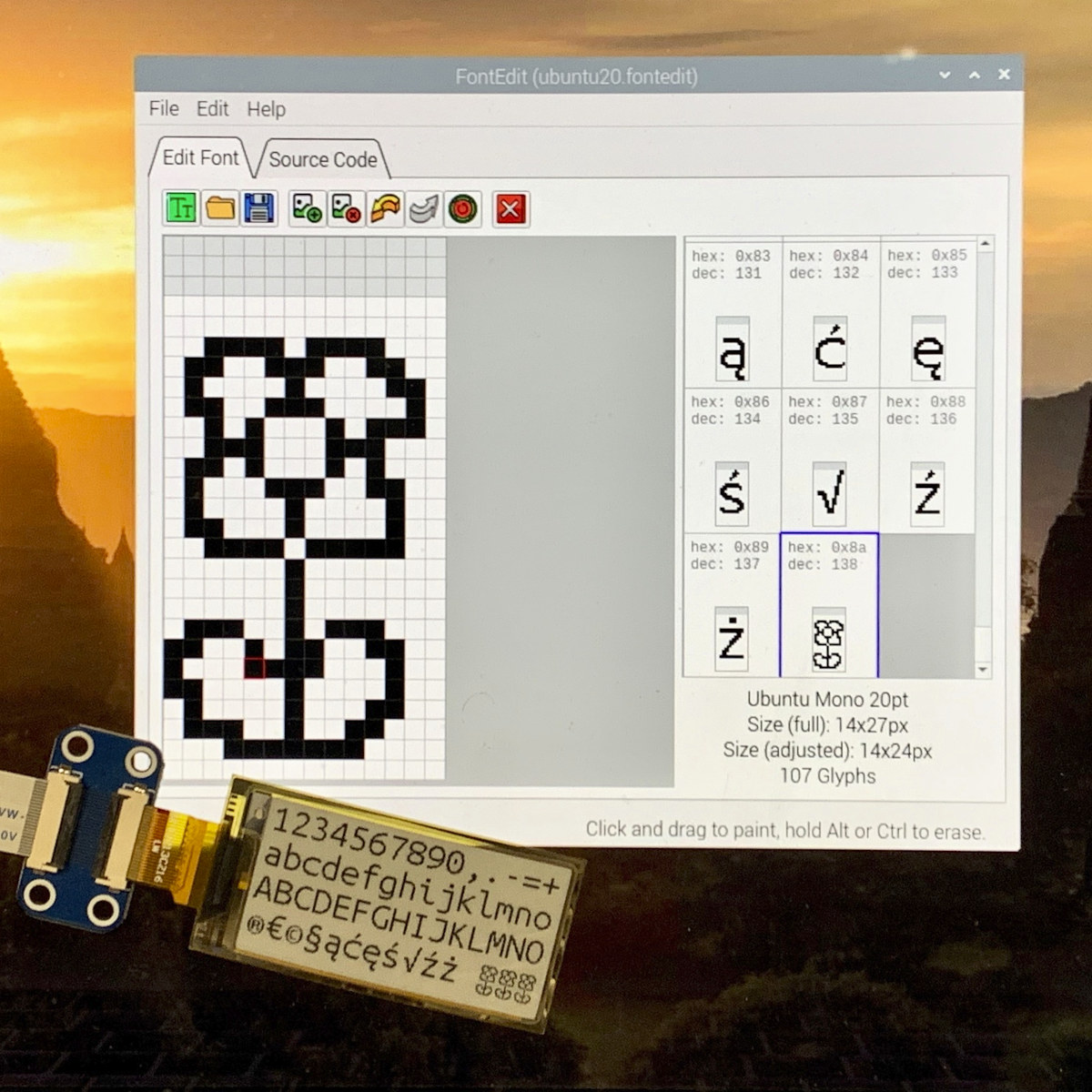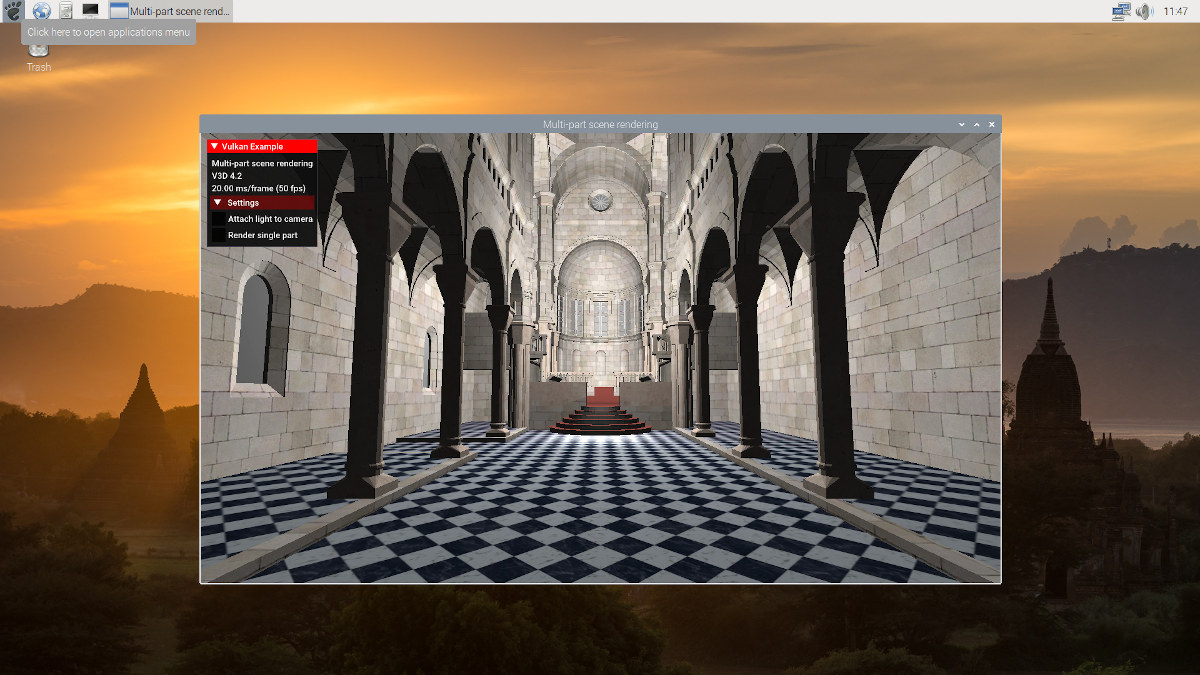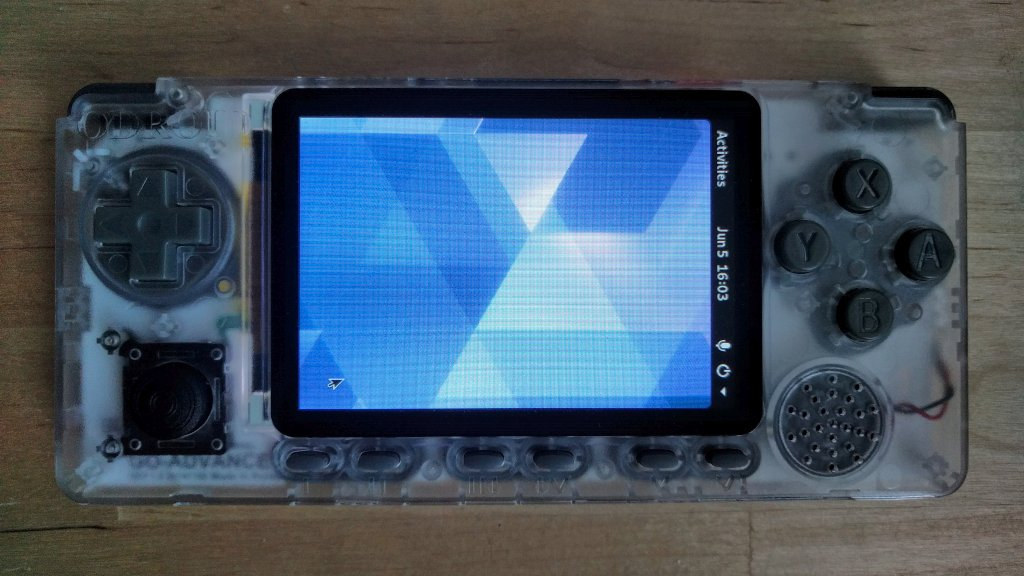With open ISAs like RISC-V, it’s become easier – provided you have the skills – to develop or customize your own SoC using RTL files, compile it with EDA tools, and run the resulting bitstream on an FPGA. But if you ever wanted to get an actual chip that would become more complex, as you’d need to request a process design kit (PDK) from a foundry, and pay for the manufacturing cost, which amounts to at least several thousand dollars for older process nodes. But the FOSSi (Free and Open Source Silicon) Foundation has good news with Tim Ansell of Google announcing the SkyWater PDK, the first manufacturable, open-source process design kit. There are other open-source PDKs, but they aren’t manufacturable and/or only support older 0.35/0.5 micron nodes. The SkyWater PDK allows you to produce chips with the SkyWater foundry in the 130nm node. That’s a big improvement since you […]
CutiePi Raspberry Pi CM3+ Lite based Tablet Launched on Kickstarter
Raspberry Pi Compute Module 3+ Lite based CutiePi open-source tablet has been in the making for well over a year, and the company has made enough progress to launch a Kickstarter campaign with the Raspberry Pi tablet offered for $169 and up. CutiePi specifications: SoM – Raspberry Pi Compute Module 3+ Lite with Broadcom BCM2837 quad-core Cortex-A53 processor and 1GB RAM Storage – MicroSD card slot Display – 8-inch 5-point multi-touch display with 1280×800 resolution Video Output – Micro HDMI Audio – 2W 8Ohm speaker Camera – 5MP front-facing camera Connectivity – WLAN 802.11 b/g/n WiFi 4 and Bluetooth 4.0 (RTL8723BS) USB – 1x USB type-A port Expansion – 6x GPIO pins Sensor – Gyroscope Misc – Handle that doubles as a stand Battery – 5,000 mAh Li-Po battery Power Supply – 5V via USB Type-C port; STM32 MCU handles power management and battery level monitoring Dimensions – 213 x […]
TASMOTA Now Supports ESP32 Targets including some Ethernet and Camera Boards
TASMOTA now supports ESP32. The open-source firmware was initially designed for ESP8266 and ESP8285 based Sonoff home automation devices providing an alternative to eWelink firmware with support for MQTT protocol allowing integration with home automation frameworks like Domoticz or openHAB. It has since then expanded to support hardware from various brands, but until recently you were still limited to products with ESP8266 or ESP8285, and the good news is that TASMOTA has now gotten experimental support for ESP32 boards and products such as TTGO T-Camera. You’ll find basic documentation and well as Tasmota ESP32 (aka Tasmota32) firmware files for LilyGO TTGO T-Camera board, displays, and I2C sensor on Tasmota Github.io website. The ESP32 port is based on Jörg Schüler-Maroldt’s work. PuceBacoon also found other ESP32 boards in the source code including Olimex ESP32-PoE board in xdrv_82_ethernet.ino file and “AI Thinker” cameras in xdrv_81_webcam.ino. If you’d like to give it a […]
Raspberry Pi VideoCore IV Boards Get an Unofficial Vulkan Driver Good Enough to Play Quake 3
The Raspberry Pi Foundation is collaborating with Igalia to work on everything related to graphics support for VideoCore VI GPU found in Raspberry Pi 4’s Broadcom BCM2711 SoC. This lead to OpenGL ES 3.1 conformance at the beginning of the year, and good progress with Raspberry Pi 4 Vulkan support. There’s no plan to work on an official Vulkan driver for earlier Raspberry Pi boards with VideoCore IV GPU, but since the Raspberry Pi Foundation released open-source VideoCore IV driver and documentation several years ago, it’s, in theory, possible for skilled developers to improve on it. That’s exactly what Martin Thomas, an NVIDIA engineer, has done in his spare time, and after two years of work, a Vulkan driver for Raspberry Pi VideoCore IV board – RPi-VK-Driver – has been released on Github. Pi-VK-Driver implements a subset of the Vulkan, and since it is not fully conformant to the standard […]
zGlue Launches the Open Chiplet Initiative in Collaboration with Google and Antmicro
We first covered zGlue’s ZiP (zGlue Integration Platform) in 2018 as the company introduced its multi-chip module similar to SiP (system-in-package) via a crowdfunding campaign. Just like SiP, the technology packages several components into a single package, but costs have been brought down to enable low-volume production of custom chips for a reasonable price. Since then the company announced new ZiP multi-chip modules such as nRF52832 based Omnichip and the FPGA, Arm or/and RISC-V based GEM ASIC by Antmicro. The company recently announced the Open Chiplet Initiative, a collection of open-source designs, tools and file formats, launched in collaboration with Google and Antmicro. There are four main types of tools within the Open Chiplet Initiative: Open Chiplet Interfaces – Currently only ZEF (zGlue Chiplet Info Exchange Format) is provided. It defined the part numbers, pins, and mechanical dimensions of various parts. The ZEF specification can be found on Github. Design […]
FontEdit Font Editor Targets Embedded Systems with LED, LCD or e-Paper Displays
Once I had to use a Chinese TTF font in a project were storage was limited, and I managed to reduce the font size with FontForge open-source editor. It works well as long as your system support standard font formats like TrueType or OpenType, but on embedded systems with even fewer resources, it may not be workable due to the size of the font file, and the footprint of the required libraries. Instead, you may have to prepare the font in an image editor and convert those into code with a script and that can be cumbersome. So Dominik Kapusta decided to write a little tool to simplify the process. Meet FontEdit. The program allows you to import fonts, edit glyphs, and potentially add your own custom drawings. It does have some limitations as it only works with general-purpose fixed-width desktop font and imports font glyphs for characters in the […]
Raspberry Pi 4 Vulkan Source Code Released, More Complex Vulkan Demos Supported
The Raspberry Pi Foundation announced they had started working on Vulkan support for Raspberry Pi 4 in January with the initial implementation being able to render the “hello world of graphics”, i.e. a basic triangle. Progress are been made with the Mesa 3D library been able to render more complex demos, specifically Sascha Willems Vulkan demos. That’s encouraging, but the current Vulkan implementation is still not usable to play games on Raspberry Pi, and some of Sascha’s Vulkan demos are still not working at the time of writing. Yet the list of working demos is fairly long: distancefieldfonts descriptorsets dynamicuniformbuffer gears gltfscene imgui indirectdraw occlusionquery parallaxmapping pbrbasic, pbribl, pbrtexture pushconstants scenerendering shadowmapping, shadowmappingcascade specializationconstants sphericalenvmapping stencilbuffer textoverlay texture, texture3d, texturecubemap triangle vulkanscene The other good news is that Igalia and the Raspberry Pi Foundation have now released the source code of v3dv fork of Mesa library on Freedesktop Gitlab so […]
GNOME Renders on Arm Mali-G31 Bifrost GPU with Fully Open Source Code
We first wrote about Panfrost open-source Arm Mali GPU driver getting initial support for Mali-G31 Bifrost GPU in late April, when engineers at Collabora managed to run some basic demos. Progress has been fast-paced as the company has now implemented support for all major features of OpenGL ES 2.0 and some features of OpenGL 2.1. That means hardware-based on Arm Mali-G31 GPU such as ODROID Go Advance (used for testing) can run Wayland compositors with zero-copy graphics, including GNOME 3, every scene in glmark2-es2 benchmarks, and some 3D games such as Neverball. All without any binary blobs. The company also claims to support hardware-accelerated video players mpv and Kodi. The way it should work is that while Panfrost driver renders the user interface, Amlogic open-source video decoder developed by BayLibre handles hardware video decoding. All changes are already included in upstream Mesa with no out-of-tree patches required, and Bifrost support […]


